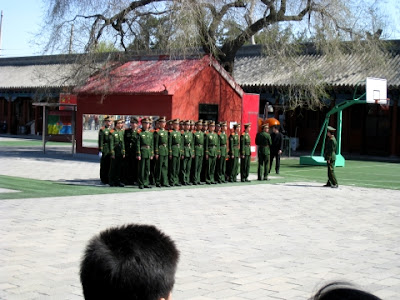Over the weekend many readers reacted viscerally to my claim that Chinese regulators increasingly have clout over American companies doing business globally. But the Chinese market is huge and growing even if predictions about its maturity from ten years ago are just as likely now as they were then.
United Airlines’ play for China has been 787 service to secondary cities. Delta’s has been a strategic relationship with China Eastern. And American invested in China Southern.

Now American has a new play in Chinese distribution. China’s Alibaba Group has an online travel service called Fliggy. American Airlines is launching an online travel store on Fliggy, and extending elite benefits to Fliggy’s elite customers.
Fliggy’s eligible F1, F2 and F3 loyalty members will be able to enjoy select benefits which American offers to its AAdvantage elite members.
F1 members will receive Preferred Boarding; F2 members will enjoy certain AAdvantage Gold elite tier benefits such as complimentary Preferred Seats; and F3 members will gain select AAdvantage Platinum privileges including complimentary Main Cabin Extra and Preferred Seat allocation.
American Senior Vice President of Global Sales and Distribution Alison Taylor says “This partnership changes the way loyalty programs in China interact with one another” but note that American is extending elite benefits to frequent customers of the Chinese travel site, they are not obtaining elite status benefits on that site for their own elite customers. This isn’t about ‘loyalty programs interacting’ it’s about American seeking access to and providing incentives in the Chinese market.
Somewhat surprisingly given American’s interest in the Chinese market and their investment in China Southern, their codesharing appears to be scaled back from the lofty expectations that were set when the deal was announced.
Last year they asked DOT for codesharing authority that’s at least three times greater than the 9 routes beyond Beijing that went on sale today — Guangzhou; Chongqing; Harbin; Shenyang; Shenzhen; Changsha; Changchun; Dalian; and Nanning. American notes to me that it’s “not uncommon” to ask DOT for more authority than needed right away and that the codeshare may “grow over time.”
There’s no codeshare in place currently, though, from Beijing to Chengdu, Chongqing, Hangzhou, Kunming, Wuhan or Xi’an as suggested in the original DOT request. And China Southern has placed its code on only 7 American Airlines routes, which is less than half that originally requested.

Nonetheless loyalty programs are perhaps more important in China than in the U.S. where surveys view program benefits more as a right than as a privilege, so it’s interesting to see American experiment with using the elite program component of their program as a tool to experiment with attracting Chinese customers.
Source : viewfromthewing
No comments:
Post a Comment